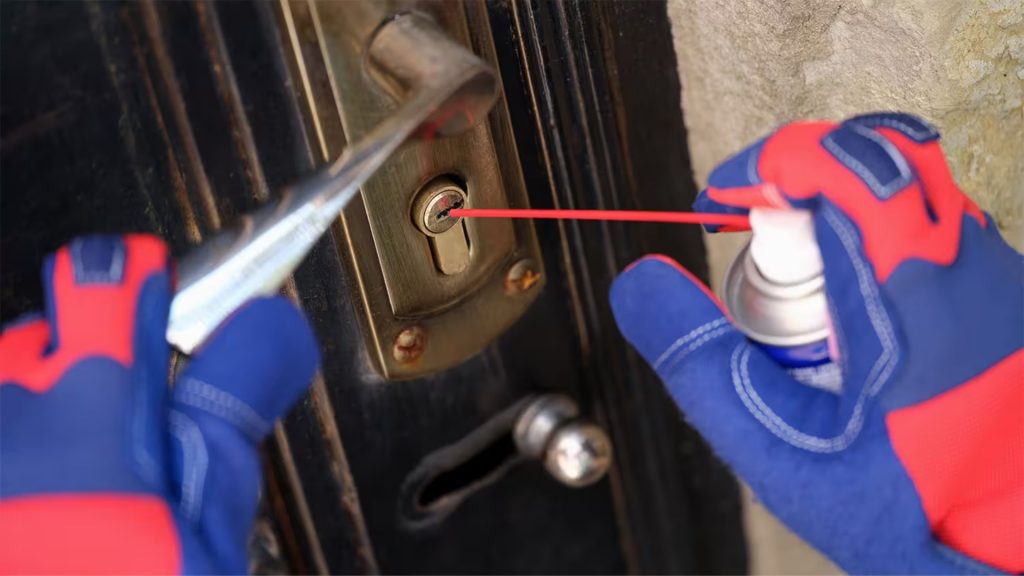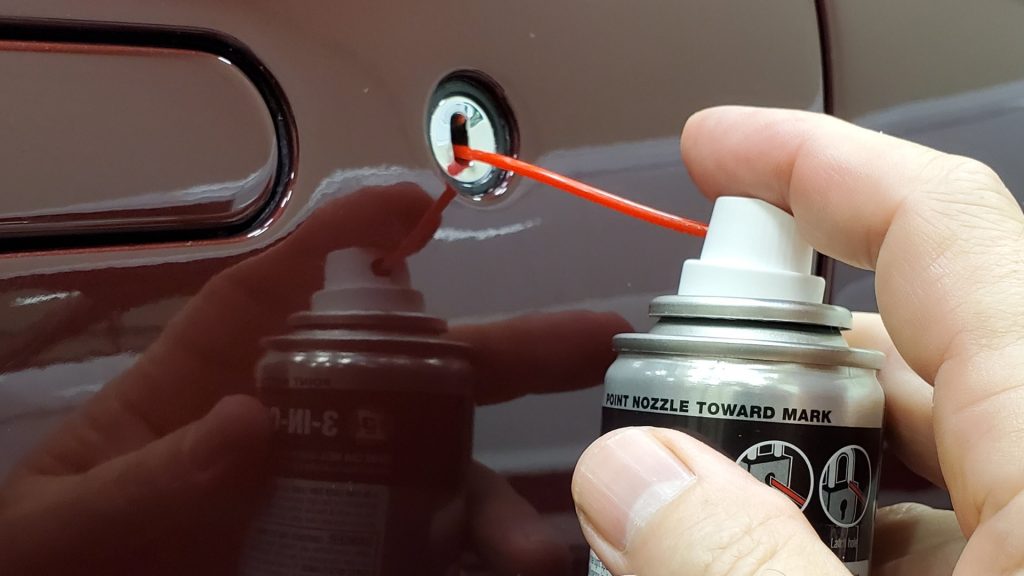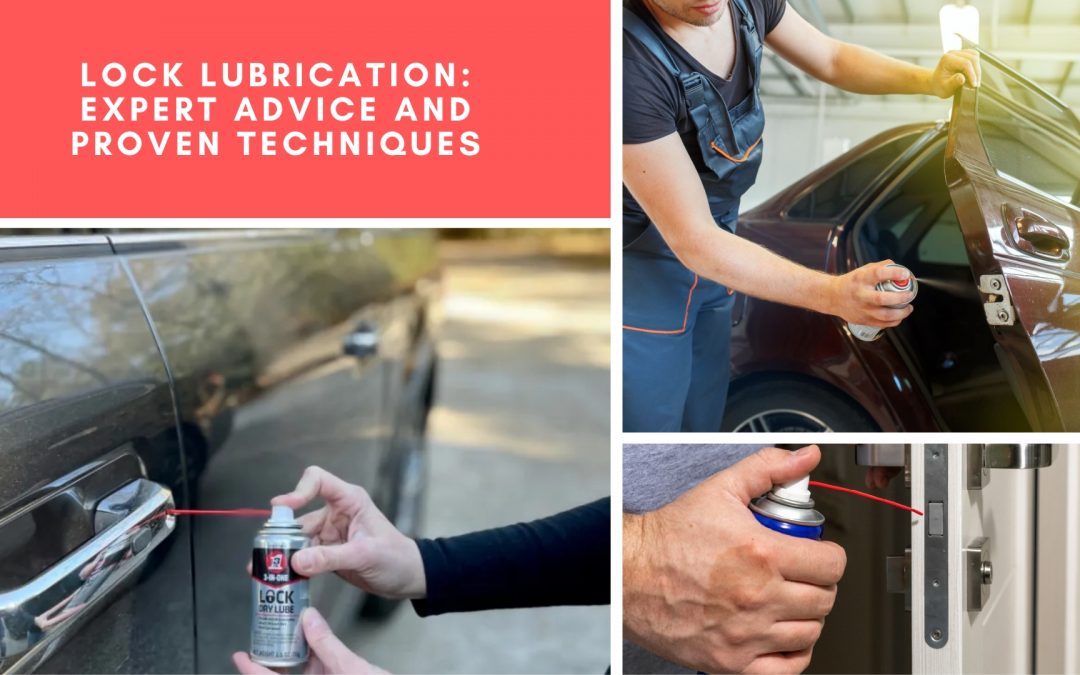Has a stubborn, noisy lock ever annoyed you because you cannot open it? If so, you are not the only one. Locks are an important part of our daily lives. Whether it is the lock on your front door, the key to your car, or that strange old chest you received, we need locks. But when they give us trouble, they can be very annoying. Because of this, lock lubrication is an important task that keeps locks in good shape.
If you know how to lubricate locks, you can save yourself time, trouble, and maybe even a few broken keys. In this guide, we look at why lubricating locks is so important. We will show you the different kinds of oils for locks and how to use them correctly. Let us begin.
Why Is Lock Lubrication Important?
Lock lubrication is the key to keeping a lock last and working at its best. When the tumblers, springs, and pins inside a lock are well-lubricated, they move easily and without resistance. Over time, dust, dirt, and rust can build up in locks, making it hard to turn the key or open the lock.
Lubrication reduces friction so the parts can move easily and without resistance. It also makes it less likely that the key will break or get locked out, keeping the lock’s parts from wearing out. In addition, oiling locks regularly makes them last longer and lowers the need for expensive repairs or replacements.

Types of Lock Lubricants
Dry lubricant
Dry lubricants are made of small solid elements instead of oils or liquids. They repel dust, dirt, or other things that could stop the lock from working well. Here are some of the best types of lock lubricants:
Graphite lubricant
It is a popular choice because it is a natural dry lube that is cheap and easy to get. Various qualities of these lubricants make them good at reducing friction between surfaces. Because of this, graphite lubricants are suitable in places with high temperatures and where liquid lubricants might not work.
Silicone-based lubricant
This lube does not break down in water and works even at high temperatures. It keeps rust away for a long time. It is also easy to use without making a mess or damaging anything.
Teflon-based lubricants
These lubricants contain a synthetic compound called PTFE, making them a good lubricant for locks. They are slippery and resistant to sticking. Lubricant made with Teflon forms a shield that keeps rust and other things from getting in. These lubes are good for all kinds of locks, including the ones on doors and cars.
Best Practices for Lock Lubrication
Lubricating locks is important to keeping them in good shape and ensuring they last a long time. Here are some of the best ways to lubricate locks:

Choose the right lubricant
Choose a high-quality dry or graphite-based lock lube. Do not use oil-based oils because they can attract dirt and dust, making locks stop working.
Clean the lock
Make sure it is clean and free of dust, dirt, and other things before putting lubricants on it. Use a brush or a can of compressed air to remove any dust or dirt inside the lock.
Avoid liquid lubricants
Do not use liquid lubricants like WD-40 because they can attract dirt and leave a sticky residue that can get into locks and make them hard to open.
Avoid lubricating exterior locks excessively
Exterior locks are open to the weather and can get dirty, mixing with the lubricant and making a mess. Use a small amount of lubricant to prevent this problem.
Regular maintenance
Schedule monthly maintenance for locks, especially ones used frequently. That will keep the locks from getting clogged and keep them in good shape.
Test the lock
After putting in the lubricant, turn the key in several times to ensure it works smoothly. If you feel any resistance or sticking, clean the lock and add grease to it again.
Apply moderately
A small amount of lubrication goes a long way. If you use too much lube, it can build up and cause the lock to stick. Put a small amount of lube on the key, then put the key in the lock and move it in and out to spread the lubricant.
Avoid lubricating electronic locks
Check the manufacturer’s instructions for automatic locks. Most automatic locks do not need lubrication; some oils can make them less effective.
Consult a professional
If you do not know how to lubricate a lock, or if it is all worn or broken, ask a professional for advice and help to find the right type of lock lubricant for your needs.
Store lubricants properly
Keep your lock lubricants in a cool, dry place, and make sure the caps are tight to keep them from getting dirty.
Remember that every lock is different, so always read and follow the manufacturer’s instructions for lubricating the lock. Following these best practices can help your locks work better and last longer.
Seek Professional Help for Lock Maintenance
When your locks show signs of wear or malfunction, it is tempting to go the DIY route. However, it is crucial to seek professional help for lock maintenance. Locks are complex, and experts can ensure they function smoothly and last longer. DIY mistakes can lead to bigger damages and costs. Meanwhile, a locksmith not only fixes the issue but also identifies weak spots. Think of it this way: just as you would see a doctor for health concerns, it is best to call a locksmith for your lock’s health. Prioritize safety and peace of mind; let experts handle your locks.
Locksmith Near Me
Do not let a lock that would not open ruin your day. Trust South Pasadena Lock for all of your lock and key needs. Our licensed locksmiths are experts at lock maintenance and lubrication, ensuring your locks are secure and working as they should. Whether it is for your home, office, or car, our emergency locksmith can handle all your lock-related troubles.
So do not take chances with your protection. Let our experts keep your locks in good shape. Call us today to guard your valuables and have peace of mind that your locks are in the hands of the lock masters in South Pasadena and the nearby cities.


 South Pasadena Locksmith is a locally owned and operated locksmith service company that provide fast and professional locksmith service to the residents of South Pasadena and the near by communities like: Pasadena, Altadena, Glendale, Alhambra, Monterey Park, Rosemead along side many others..
South Pasadena Locksmith is a locally owned and operated locksmith service company that provide fast and professional locksmith service to the residents of South Pasadena and the near by communities like: Pasadena, Altadena, Glendale, Alhambra, Monterey Park, Rosemead along side many others..